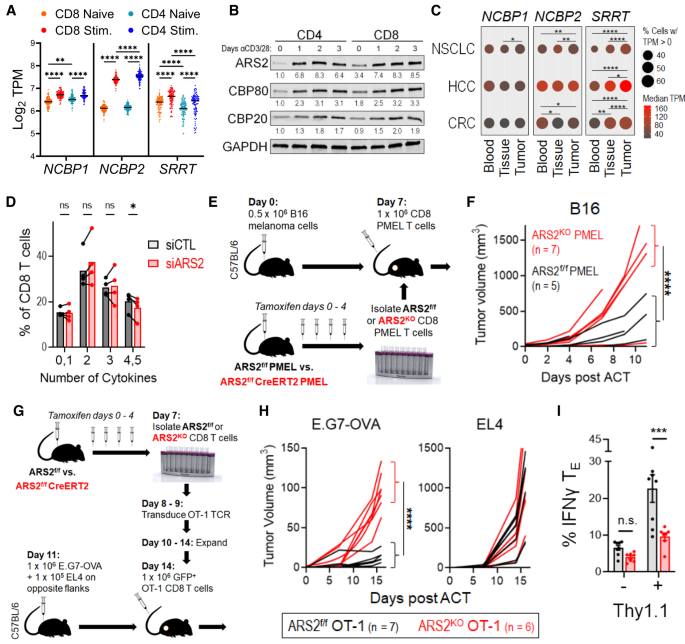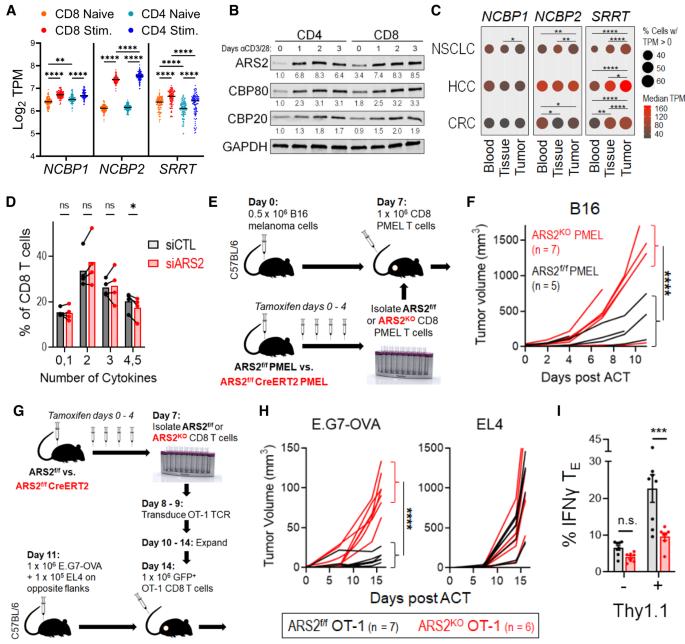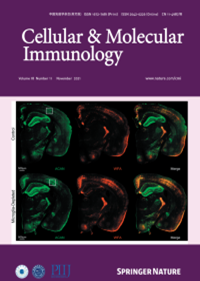CD8+ T cell metabolic flexibility elicited by CD28-ARS2 axis-driven alternative splicing of PKM supports antitumor immunity
IF 21.8
1区 医学
Q1 IMMUNOLOGY
引用次数: 0
Abstract
Metabolic flexibility has emerged as a critical determinant of CD8+ T-cell antitumor activity, yet the mechanisms driving the metabolic flexibility of T cells have not been determined. In this study, we investigated the influence of the nuclear cap-binding complex (CBC) adaptor protein ARS2 on mature T cells. In doing so, we discovered a novel signaling axis that endows activated CD8+ T cells with flexibility of glucose catabolism. ARS2 upregulation driven by CD28 signaling reinforced splicing factor recruitment to pre-mRNAs and affected approximately one-third of T-cell activation-induced alternative splicing events. Among these effects, the CD28-ARS2 axis suppressed the expression of the M1 isoform of pyruvate kinase in favor of PKM2, a key determinant of CD8+ T-cell glucose utilization, interferon gamma production, and antitumor effector function. Importantly, PKM alternative splicing occurred independently of CD28-driven PI3K pathway activation, revealing a novel means by which costimulation reprograms glucose metabolism in CD8+ T cells.


CD28-ARS2 轴驱动的 PKM 替代剪接激发的 CD8+ T 细胞代谢灵活性支持抗肿瘤免疫。
代谢灵活性已成为 CD8+ T 细胞抗肿瘤活性的一个关键决定因素,但驱动 T 细胞代谢灵活性的机制尚未确定。在这项研究中,我们研究了核帽结合复合体(CBC)适配蛋白 ARS2 对成熟 T 细胞的影响。在此过程中,我们发现了一个新的信号轴,它赋予活化的 CD8+ T 细胞葡萄糖分解代谢的灵活性。CD28 信号驱动的 ARS2 上调加强了剪接因子对前核糖核酸的招募,并影响了大约三分之一的 T 细胞活化诱导的替代剪接事件。在这些影响中,CD28-ARS2 轴抑制了丙酮酸激酶 M1 异构体的表达,而有利于 PKM2 的表达,PKM2 是 CD8+ T 细胞葡萄糖利用、γ 干扰素产生和抗肿瘤效应功能的关键决定因素。重要的是,PKM 替代剪接的发生与 CD28 驱动的 PI3K 通路激活无关,揭示了成本刺激重新规划 CD8+ T 细胞葡萄糖代谢的一种新方法。
本文章由计算机程序翻译,如有差异,请以英文原文为准。
求助全文
约1分钟内获得全文
求助全文
来源期刊
CiteScore
31.20
自引率
1.20%
发文量
903
审稿时长
1 months
期刊介绍:
Cellular & Molecular Immunology, a monthly journal from the Chinese Society of Immunology and the University of Science and Technology of China, serves as a comprehensive platform covering both basic immunology research and clinical applications. The journal publishes a variety of article types, including Articles, Review Articles, Mini Reviews, and Short Communications, focusing on diverse aspects of cellular and molecular immunology.

 求助内容:
求助内容: 应助结果提醒方式:
应助结果提醒方式:


